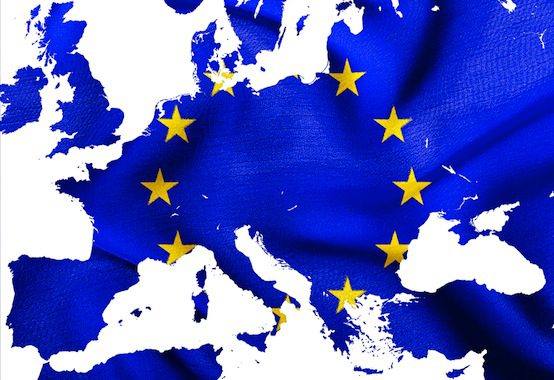The Grexit and the Future of Europe

I’ve got a new column up at The Week:
Economically, allowing Greece to leave the euro and default on its debt might be the best thing for all parties. After a period of disruption, Greece would be able to grow again. The eurozone, meanwhile, would have demonstrated that it can distinguish between risks worth taking (Ireland) and risks not worth taking (Greece), and that it is not as brittle as might have been thought. But even if it is economically sensible — indeed, arguably because it may be economically sensible — a Grexit would have deeper implications for the trajectory and meaning of the European project.
That project was originally intended to be something new, neither a traditional state nor a mere customs union, but a kind of supra-national governance that would supplant nationalism, and end the possibility of intra-European conflict. Entry into the EU would tutor Italians and Portuguese in German thrift, and would cement Western democratic norms in countries like Ukraine and Turkey. It was a mechanism for defining — and expanding — the meaning and boundaries of European civilization.
A Grexit would redefine both the meaning and those boundaries. Countries like Poland are going to be properly leery of adopting the euro once it is clear that handing over control of monetary policy does not come with any implicit fiscal guarantees. Greece’s new government is already providing Moscow with diplomatic support as Europe debates the possibility of further sanctions in response to Russian intervention in Ukraine. They will presumably only adopt a more pro-Russian line in the wake of a Grexit.
If it happens, a Grexit will make it clear that there are not only rules for becoming “European” but also rules you have to abide by to remain a European in good standing — rules over which supplicant states have little influence. Rationally, every state — even those in the heart of Europe — will necessarily recall their primary, national allegiances, knowing that these are all they can count on when the chips are down.
The point is not that a Greek departure from the euro would be catastrophic, or that Brussels (or Berlin) ought to see itself as in some kind of competition with Moscow for the allegiance of peripheral European states. Russia’s willingness to waste blood and money on such a competition probably does it more harm than benefit; that was certainly the lesson Gorbachev took from the Brezhnev years. The point is that a willingness to let Greece leave signals precisely that Brussels — and Berlin — do not see themselves as being in that kind of competition. That the European project is no longer about defining a civilization.
Is that a good thing? I’m not sure – my feelings about the European Union are complex.
On the one hand, I understand and even admire the aims of the European project. European civilization was almost destroyed by national rivalries, so I can understand why Europe’s leaders wanted to find a political arrangement that made war in the heart of Europe seem impossible. I understand why France wanted an arrangement that magnified her potential influence, and I understand why Germany wanted an arrangement that made it possible for her to have influence again. And I also see some ancillary effects of the European project that may be positive. Union has made it more possible for smaller European nationalisms – Catalonia, Scotland – to asset themselves in a less traumatizing manner than would probably be the case without that superstructure.
On the other hand, Europe is kind of obviously ridiculous, with poor democratic accountability, no clear definition of what is properly Brussels’s business and what belongs at the national level, and what in practice amounts to a consensus-based method of governance that makes it impossible to take difficult decisions. In the past, Germany was the strongest advocate of reforming these deficits and moving towards a proper European federalism, but in the wake of the financial crisis that is much less true.
I have a great deal of sympathy for Germany’s attitude toward Europe generally – that if they are going to be on the hook fiscally that there had better be fiscal accountability – but in practice this attitude has been enforced in a punitive manner rather than being the spur to institutional reform. As a consequence, the Euro has become something of a Hobson’s choice for small countries – join and you become a German colony; don’t join and you potentially forfeit a substantial competitive advantage vis a vis your neighbors. That’s not a structure that is going to achieve the goals that the founders of the Union intended.
Where I wind up is that America needs a strong Europe, whether it’s a federal Europe or a Europe of states. We need a strong Europe because a weak Europe will be an American dependency and will encourage us in our worst imperial pretensions, while a strong Europe will be both a more useful ally and a check on those ambitions. But the current arrangements leave Europe institutionally weak, and historically the United States has abetted that weakness by focusing almost exclusively on pushing for a larger Europe rather than a more functional one.
So I’m kind of hoping that Greece forces a reckoning, and that the reckoning doesn’t burn the house down completely.
Anyway, check out the column there.
Comments